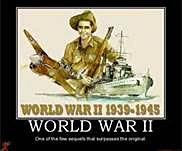When I was growing up in Tennessee, I was fascinated by legends about the Melungeons. The legends told of a mysterious people, with European practices, already in the Appalachians when the earliest white settlers arrived.
Speculation abounded, even as the group was shunned, a dark people, looked down on by many of the newcomers. Were they descendants of whites married to native Americans? Descendants of shipwrecked Portuguese sailors off the coast of North Carolina? Descendants of free blacks married to native Americans? Descendants of the Lost Colony of Virginia, which vanished from history at the end of the 16th century? Or even descendants of European Jews escaping persecution?
Imagine my surprise when I picked up a copy of The Economist (August 27, 2016) to find an article on the Melungeons. The author had traveled to “Snake Hollow . . . between the ridge and Powell Mountain and hard on Tennessee’s northeastern border.” Stories from that neck of the woods don’t often make it into the pages of an international magazine. The article concludes with a quote from the president of the Melungeon Heritage Association: “The Melungeons . . . are part of the fabric of Appalachia. The fabric of America.”
A few years ago, I put the Melungeons into a story of mine, Quiet Deception, a hybird mystery/romance set on the mythical college campus of Adair in one of my favorite places, the Appalachians of east Tennessee. I called them the Painter Mountain people. One of the Painter Mountain people attends Adair, the first in her family to enter college. Her sympathetic understanding of the distraught main character gives this character an incentive to find answers to two mysteries, including a possible origin for some Painter Mountain people. . . .


 One of my novels (Quiet Deception) is set in a small college town and is my only straight mystery. The others contain a twist of mystery, but I’m more interested in how the characters evolve and the moral dilemmas they face.
One of my novels (Quiet Deception) is set in a small college town and is my only straight mystery. The others contain a twist of mystery, but I’m more interested in how the characters evolve and the moral dilemmas they face. At the beginning of this era, the United States led her allies to defeat the Axis powers, Germany and Japan. Wars dramatically change the social fabric, and World War II, so immense and terrible, was bound to spawn changes that reverberate today.
At the beginning of this era, the United States led her allies to defeat the Axis powers, Germany and Japan. Wars dramatically change the social fabric, and World War II, so immense and terrible, was bound to spawn changes that reverberate today. It is this period which becomes one of the characters of Quiet Deception.
It is this period which becomes one of the characters of Quiet Deception.